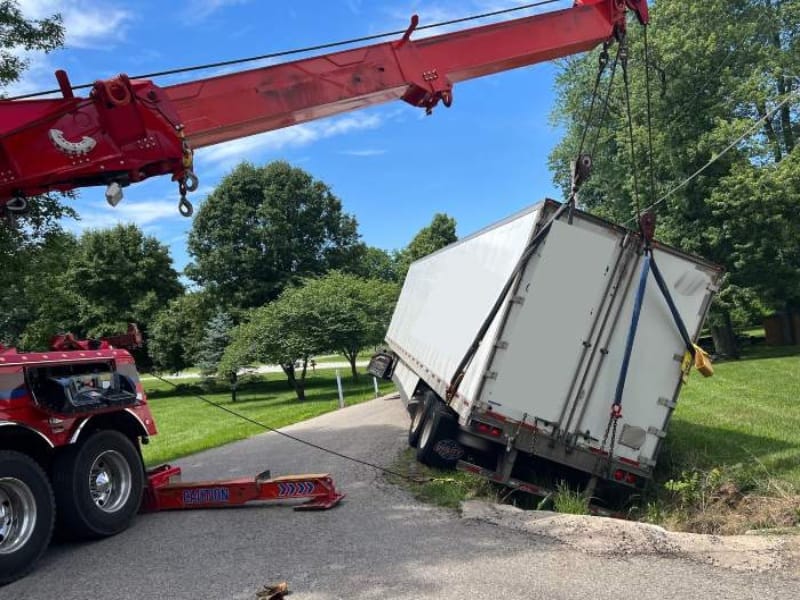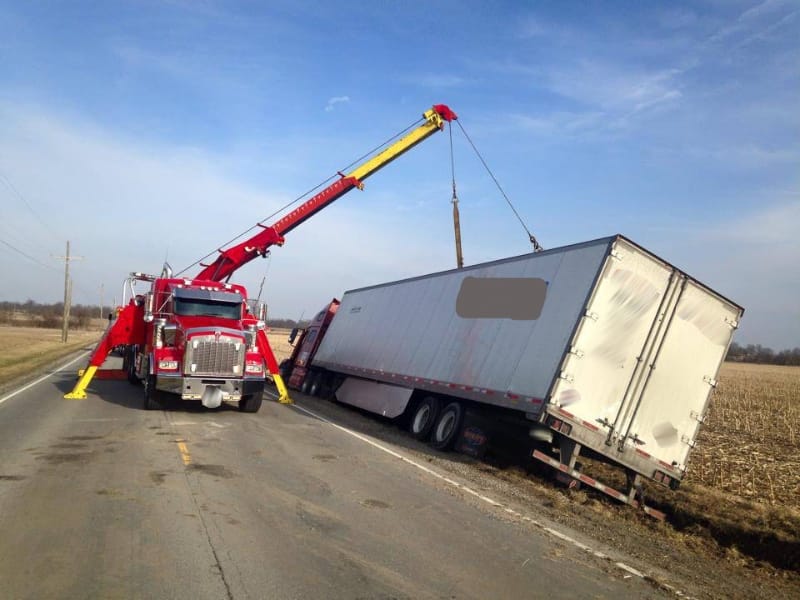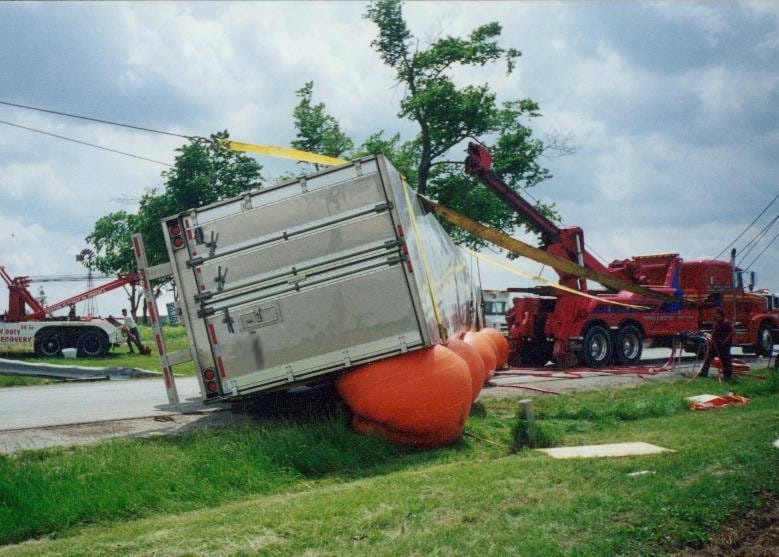The Dangers Inside Your Trailer
A perfect trip can turn disastrous in seconds: all it takes is one shifted load: a driver rounds a curve, brakes just a little too hard, or hits a pothole, and suddenly the weight inside the trailer moves. What seemed like a routine haul now risks damage, delays, or even a full-blown roadside emergency. If that happens, our Tipton load shift correction service is ready to get you back on track. But since prevention is always the better option, here are our top tips for freight carriers to avoid load shifts before things go sideways.

Know What You’re Hauling and How It Acts on the Road
Not all freight behaves the same way. Pallets of dry goods, liquid tanks, and stacked lumber each have their quirks. The more we understand our load, the better we can secure it.
Some Freight Is Always Looking for a Way Out
The road applies constant pressure to your cargo. Acceleration, turns, and stops all create motion, and that motion creates risk. Loads with rolling parts, irregular shapes, or high stacking are especially prone to shifting. Every experienced hauler has learned this the hard way once. But only once.
Three Simple Questions Save You from Trouble
Before every trip, ask yourself:
- Is this load top-heavy or unevenly distributed?
- Is the freight likely to settle or compress during transit?
- Have I accounted for liquid surge or suspended components?
If any of these answers give you pause, it’s time to double-check your setup. Avoiding the need for Tipton load shift correction later starts with a better setup now.
Secure Like You Expect It to Fail
Here’s something we’ve learned after thousands of miles: If it can move, it will move. That’s why tie-downs and straps are so important.
Not All Securements Are Equal
There are all kinds of setups, some solid, others held together by blind faith. There’s no shortcut here. Good load security requires:
- Grade-rated straps and chains
- Edge protectors to prevent fraying
- Locking bars or load locks for tight trailers
- Anti-slip mats to reduce shifting from vibration
It’s tempting to do “just enough” to get rolling, but that’s a gamble. Taking ten extra minutes to reinforce the load might save you ten hours waiting for our Tipton load shift correction team on the side of the road.
Stop and Check. Even When You’re on Schedule
No one likes delays, especially not freight operators. But stopping to inspect your cargo mid-trip can protect your delivery and schedule.
Moving Freight Rarely Stays Put
Even a properly secured load can shift slightly during travel. Vibrations from the road, sudden lane changes, or steep grades can loosen straps or nudge pallets out of place. Midway checks help us catch these minor shifts before they become major hazards.
Here’s what we check during roadside inspections:
- Are all straps still tight and undamaged?
- Has the load compacted or settled?
- Are there gaps or shifts in positioning?
Frequent stops mean fewer surprises.

Paddack’s Wrecker Knows the Risks. And Our Tipton Load Shift Correction Service Can Help
Our team brings the equipment and experience to stabilize cargo, offload and reload if needed, and make sure your rig isn’t going anywhere it shouldn’t. Whether it’s spilled cargo, a trailer listing hard to one side, or a fully blocked route, we handle Tipton load shift correction situations fast and without shortcuts.
We’ve seen what happens when freight operators skip mid-trip checks or rely on makeshift tie-downs. That’s why we treat Tipton load shift correction as an essential service, to keep roads safer for everyone.
The best-case scenario? You never need us. But if the road throws you a curve and your freight doesn’t stay where it should, our Tipton load shift correction crew is ready.

